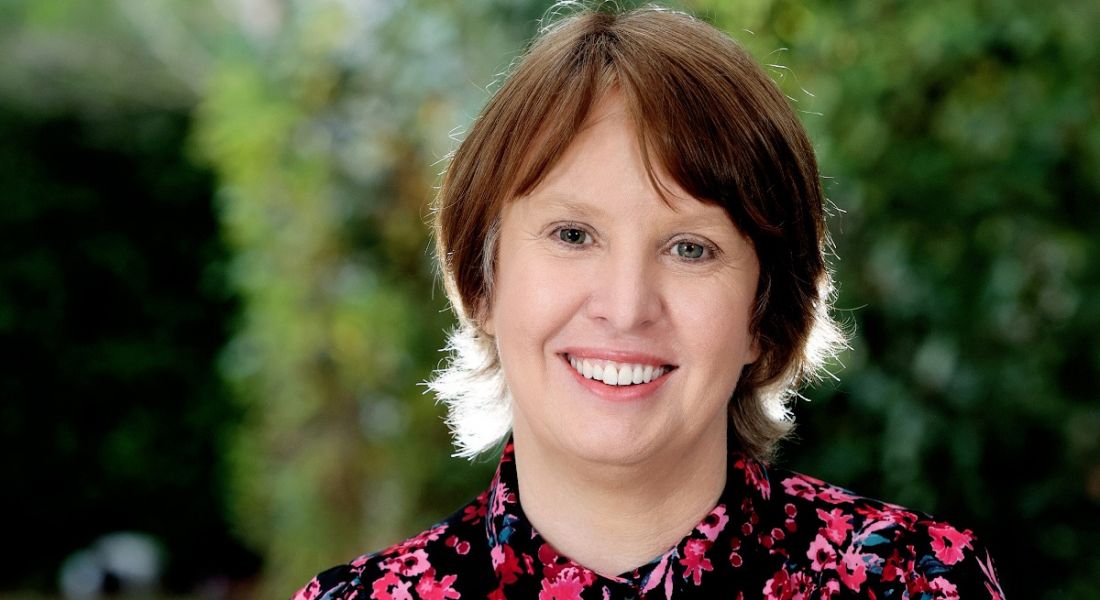After the year that made remote working skyrocket, where will the future of work trends pivot in what will be the new normal?
The future of work has been talked about for a long time, but after remote working skyrocketed throughout 2020 due to the Covid-19 pandemic, the next stage of the future of work has been accelerated massively.
As director of people and organisation at PwC, Ger Twomey’s role centres around strategic workforce planning, change management, organisation design, culture, diversity and inclusion, and HR systems.
‘We won’t return to the way things were before as people will continue to demand and expect ongoing flexibility from their employer’
– GER TWOMEY
She believes the pandemic has caused the conversation around the future of work to shift in recent months. “Many organisations and the people working within them have had to transition to a new way of working almost overnight and the art of the possible has really come to fruition,” she said.
“This has been enabled by technology but also by the flexibility and resilience of people and their organisations. It also means that we won’t return to the way things were before as people will continue to demand and expect that ongoing flexibility from their employer.”
Twomey also expects to see more organisations putting employee needs and expectations at the heart of their decision-making processes. “The new working environment and an organisation’s policies in relation to this (such as ongoing flexible working practices) will be key drivers of attraction and retention.”
While the acceleration of a remote workforce has already happened, Twomey said that 2021 and beyond will highlight the more long-term challenges that come with it.
“From speaking with my own colleagues and friends, however, I think some of the negatives are starting to hit home more. People are missing the social interaction with colleagues, the casual chats, lunches, post-work drinks. These are key to building relationships and also to helping people manage the pressures of busy jobs,” she said.
“People are also finding it much harder to collaborate as effectively as before. Although there are some great technology tools to help in this regard, I think we are missing the spontaneity of being able to swing by someone’s desk to bounce ideas off each other. Hopefully 2021 will see more opportunity for a blended mix of both remote and workplace working which will help to address these challenges.”
Upskilling will become more essential than ever
The growth of remote working was a major trend that was forecast for years before Covid-19 forced most of the world to embrace it. Now that it has fully arrived, Twomey believes one of the next key trends that is still in its infancy is upskilling.
“The ‘never going away’ battle for talent and concerns that business leaders have about their need for new and enhanced capabilities in their business is nothing new. PwC’s Talent Trends 2020, which was based on survey data from late 2019, showed that 74pc of CEOs were concerned about the availability of key skills,” she said.
‘Human relations skills will become increasingly important – those skills that can’t be replicated by technology’
– GER TWOMEY
“The pandemic, however, brought some skill and capability gaps to the fore and it also caused a lot of organisations to think more strategically and in a more focused way about the workforce they need for the future.”
She said the need for companies to find talent that have the right cultural fit and the right skills will lead many businesses down the route of upskilling the talent they already have. “There are tangible financial, productivity and employee engagement benefits to this,” she said. “It is also important to think about digital upskilling, in particular, beyond a business or revenue perspective.”
Twomey also said that the skills we consider important going forward need to be thought of in a more holistic way, especially in the era of AI, increased automation and machine learning.
“Human relations skills will become increasingly important – those skills that can’t be replicated by technology. Things like relationship skills, empathy, resilience, creative thinking. It’s important that our education system, from primary school right through to third level, is focused on building these capabilities to ensure that people can succeed and adapt in a world where the pace of change is going to be greater than anything we have seen before,” she said.
“I also think the new world of work is changing the leadership dynamic and setting new challenges for our leaders. They are having to lead in a world unlike anything we have experienced before.
Adapting to an ever-changing dynamic
Even when 2021 brings whatever level of settling down it can after the Covid-19 pandemic, there will still be a degree of uncertainty. Therefore, Twomey’s main piece of advice for leaders and organisations is to adapt working and management practices to a dynamic that will be constantly changing.
“2021 is likely to see a blended mix of both home working and ‘back to the office’. Managers will need to adapt their practices and engagement models to ensure that both populations, those working from home or in the office on a given day, feel equally included and have the same opportunities to collaborate, innovate and problem solve together,” she said.
“Organisations must work hard to communicate expectations clearly and support each employee to manage their own experience. This needs to be part of a wider shift in corporate culture, one that genuinely encourages flexibility and puts employee wellbeing first.”




